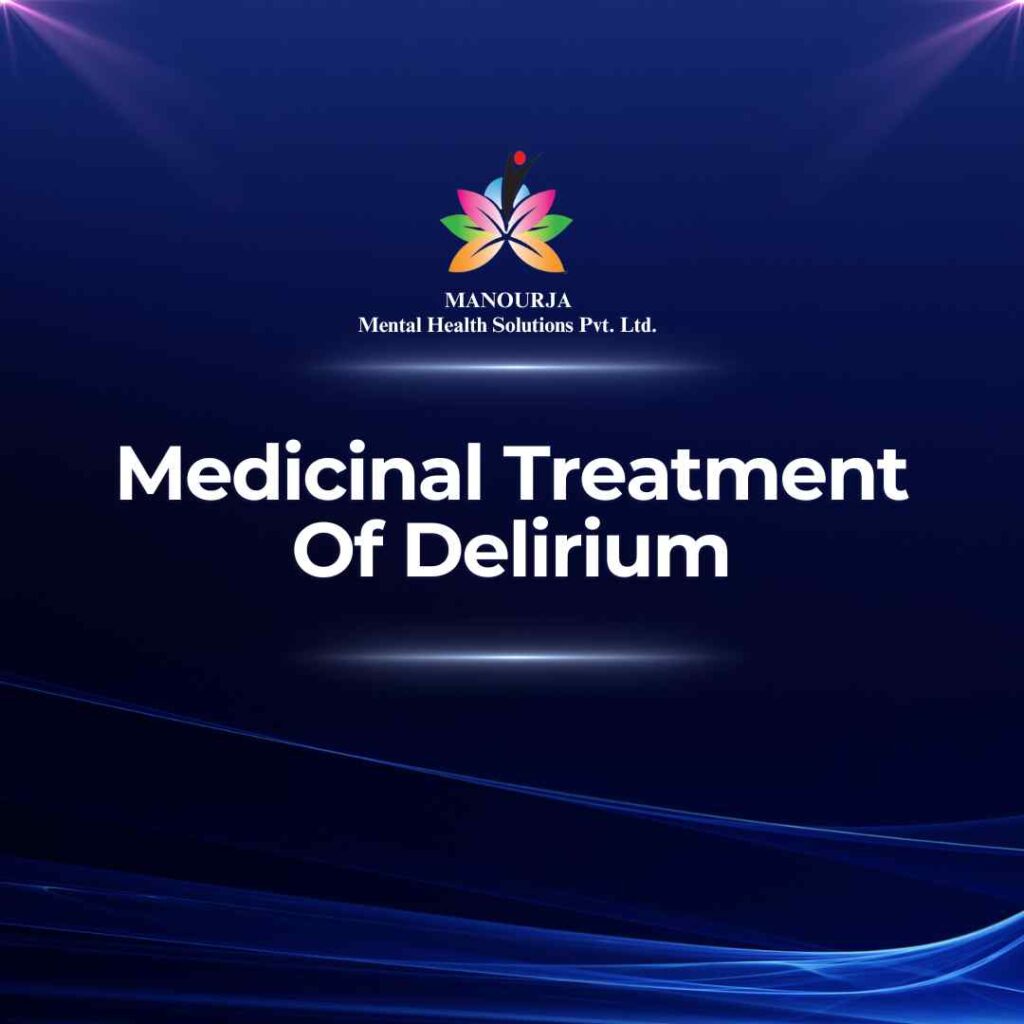Medicinal Treatment of Delirium

The medicinal treatment of delirium typically involves addressing the underlying causes, managing symptoms, and providing supportive care. It’s important to note that the specific approach may vary based on the cause of delirium and individual patient factors.
Here are key components of the medicinal treatment of delirium:
Identification and Management of Underlying Causes
- Infections: If the delirium is caused by an infection, appropriate antibiotics or antiviral medications may be prescribed.
- Metabolic Imbalances: Addressing imbalances in electrolytes, blood sugar, and other metabolic factors is crucial for resolving delirium.
- Medication Review: Discontinuing or adjusting medications that may contribute to delirium, such as certain sedatives or anticholinergic drugs, is an important step.
Symptom Management with Medications
- Benzodiazepines: In cases of alcohol withdrawal or certain drug-induced delirium, benzodiazepines may be used to manage symptoms and prevent seizures.
- Antipsychotic Medications: These drugs may be prescribed to manage severe agitation, hallucinations, or delusions. However, their use requires careful consideration of potential side effects, especially in elderly patients.
Sedatives and Hypnotics
- Short-Term Use: In some cases, short-term use of sedative or hypnotic medications may be considered to help calm agitated individuals and promote better sleep.
Pain Management
- Analgesics: Addressing pain, if present, is essential. Adequate pain management can contribute to improved comfort and reduced agitation.
Prevention of Complications
- Anticoagulants: In cases where there is a risk of thrombosis due to immobility, anticoagulant medications may be prescribed to prevent complications.
- Fluid and Nutrition Management: Maintaining proper hydration and nutrition is crucial for overall well-being and can aid in the recovery process.
Individualized Approach
- Patient-Specific Considerations: Medicinal treatment is highly individualized, taking into account factors such as age, overall health, and the specific cause of delirium.
Monitoring and Adjustment
- Regular Assessment: Close monitoring of the patient’s response to medications and overall clinical status is essential. Adjustments to the treatment plan may be made based on ongoing assessment.
It’s important to emphasize that medicinal treatment is just one aspect of managing delirium. Supportive care, environmental modifications, and addressing non-pharmacological contributors to delirium (such as sensory impairments or sleep disturbances) are also integral parts of the overall approach. Additionally, involving family members and caregivers in the treatment plan can enhance the support system for individuals experiencing delirium. A multidisciplinary approach that includes medical, nursing, and allied health professionals is typically employed to ensure comprehensive and effective care.
At MANOURJA, we believe in the transformative power of counseling. Our experienced therapists offer a safe and supportive space where you can explore your thoughts, emotions, and challenges. Through personalized counselling sessions, we’ll work together to develop coping strategies, build resilience, and achieve lasting positive change. Discover the path to a healthier, happier you with MANOURJA counselling services.
MANOURJA Rehabilitation Services
At MANOURJA, we’re dedicated to helping you in rebuild your life, after difficult times. Our rehabilitation services focus on understanding what you need to move forward, whether you’re recovering from addiction, trauma, or any psychological – social challenges. We create personalized plans, that are all about helping you, regain your strength and find hope again. With a caring team by your side, you’ll have the support to make real progress and take steps toward a brighter, healthier future.
